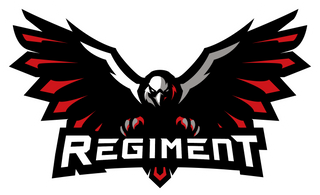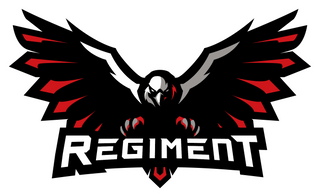
Warrior's Transition: From Combat to Code
Regiment: Could you introduce yourself, tell me what you did in the military, and explain how you got from the military to the gaming industry?
Shhteve: Yeah, that is a very interesting path. Hi, I am Steve Ulrich or Shhteve on my socials. So, I was in the Marine Corps from 2007-2012. I did security forces in Banger, Washington, where I did CQB, Breacher school, demolitions, etc. Then, I went to 29 Palms with the 3rd Battalion 7th Marines. I was deployed to Afghanistan in 2011 with a sniper platoon for about seven months, and then I got out. Pretty quickly after that, I started going to school. I was initially convinced to go to school for game development. I did get to do some personal bodyguard work, which turned out incredibly dull after the Marine Corps. I then started school and found a program called “Cogswell” in the Bay Area of California that was more up my alley for sticking with school. Pursuing game development was far more interesting to me. I graduated in 2016 with a Bachelor’s Degree in Game Design Engineering and started working with an indie game studio for my first job. I worked on a children’s science adventure game, and afterward, I bounced around in and around the industry. I worked for Erickson and Google, mostly doing augmented and virtual reality programs. I had so much fun exploring that before landing with Treyarch in 2022. Now I get to work on Call of Duty!
Regiment: When did you first hear about Regiment, and what drew you to joining the community?
Shhteve: When I started at Treyarch, I learned about Regiment via Twitter. The algorithm essentially started showing me Call of Duty creators and content that included military members or creators already a part of Regiment. I kept seeing Regiment stuff everywhere as the organization grew. Initially, I was weary of joining because of the many communities or organizations that projected themselves as military-oriented, so I just continued to observe how Regiment was growing. Then I saw a tweet from Terminal Lance, who I am a big fan of, and saw he did a collaboration giveaway with Regiment. At that point, I decided it was time to check it out. So I ended up joining Discord, and to my discovery, I found a genuine and authentic group of individuals who played games together. I thought it was so damn cool you could just go into the Call of Duty channel and ask, “Does anyone want to play?” being met by that familiar sense of camaraderie, experiencing those cool exchanges of fellow Veterans talking about and asking about your service. That’s how I fell in love with it. It’s a good community. Aside from validating that you were in the Military, there's nothing expected of you. There is no catch-22; you are just there. It’s just about games and connecting with like-minded people through video games, and I love that.
Reigment: In what ways has your military background and skills influenced your work in Game Development?
Shhteve: Early on in my career, before coming to Treyarch, it helped me embrace the suck in the industry. I think this is true for just about anything with jobs today, and I believe that the military experience enables you to embrace the suck a lot. Specifically, early in my career and the games industry, there is this perception that you’ll have to deal with crunch times, long hours, and little pay as an engineer. Starting this mentality helped me embrace that and instead have that thought, “holy crap, I am getting paid to do this.” Many of us probably had that same thought when we shot a rocket launcher or spent time on the range. This mentality helped me push through because I had been through similar situations. With that said, I can’t sing enough praises about Treyarch because I haven’t had any moment where I had to embrace the suck like I did before. About other skills or courses, the soft skills most of us gained, like confidence, leadership, and discipline, are very valuable too. These skills are applicable and invaluable in just about anything after the military.
Regiment: Were there any games that helped influence where you wanted to end up in the games industry, or did you always aspire to work on Call of Duty?
Shhteve: Working on Call of Duty was like a pipe dream. Coming out of the military, specifically, Call of Duty and Battlefield, were the two biggest games when I started to get okay at game dev; I thought if somehow I could make it, I wanted to work on and bring my military experience to it. In terms of military-based games, I was also into Arma for a time and Day Z, and they were excellent and had my focus. The same thing happened with Tarkov. Since I experienced many simulated real-life situations, I always felt it didn’t translate to the exciting, unbelievable things in Call of Duty and Battlefield. It took me a very long time before I could even apply at Treyarch, and sometimes, I still feel like I have so much to learn. Being surrounded by many intelligent individuals pushes me to do my best.
Regiment: Were there any particular challenges you faced transitioning from the Marine Corps to Civilian and eventually Game Developer?
Shhteve: I mean, there are always the everyday difficulties of losing that brotherhood or sisterhood in the Military, and in my case, I tried to make the best of my service when I went to work as a bodyguard before game dev. When you’re getting out, people say that your job in the Military translates somewhere. I tried to do that and was considering a more significant career focus. My challenge lay in giving up on that because it wasn’t for me, and I was pursuing my dream to be an engineer and work in game development. You know, there weren’t a lot of programs in the military when I was in that supported helping someone switch skillsets. That was the most complex challenge I had to solve by graduating and putting the work in at College.
Regiment: Have you had the opportunity to interact with fellow veterans in the industry? Or do you know of any in Game Dev that have influenced your career?
Shhteve: I did have a recent opportunity where I helped someone still serving in the Air Force and working through the Hire Our Heroes program. It was an insane experience that I envied him a bit over. This guy had some concepts in level design and other niches, and we put him on the Overwatch 2 program for an internship. Honestly, the process was phenomenal. That was a massive win in my book for veterans and veterans in the industry, and it’s rare to see a veteran join the creative side of game development. Another fantastic facet is Activision/Blizzard/Xbox, which hosts an incredible group of veterans who are developers. We often work together to bring new veterans into the industry, highlight others doing great things, and build a community. Every month, we have a little mixer where we meet over Zoom, and it’s a safe-veteran space, so to speak, where we can say whatever we need to say. I do have one other example. A veteran had a hand in one of our recent Call of Duty Endowment bundles. It was called Koa King and had to do with Navy Seals. This dude has been at Treyarch for a few years now. His name is Mikhail Vega, and he is the definition of badass; he’s like a twenty-year Navy Seal veteran who got out of the military and just decided to work on directing and production in games. The dude is a straight-up door-kicker who got out and just decided he would do something completely different from what he had been doing. The best thing about this dude is he has no ego and just a lot of good energy. He shows up to our monthly mixers and is an authentic, awesome dude in every sense. Superheroes are real, and hearing him interact and talk with him is just so crazy to me, knowing the feats and challenges he has faced. He often brings a lot of awareness to the struggles veterans face, and he frequently talks the talk with those who are struggling. He has this extraordinary ability to help those veterans by reminding them of their skills to help them succeed and be that support pillar because he shared many of those same struggles.
Regiment: What’s your favorite project or most significant achievement that you are most proud of so far?
Shhteve: The easy answer is Call of Duty. Like I said before, looking at what I do now, it is still mind-boggling to say my name is in the credits of these fantastic games. I worked on the Ranked for Modern Warfare 2 and a few other faucets, and I’m very proud of how those experiences turned out. Another thing I am incredibly proud of is that about two years ago, I worked with these gentlemen in a start-up in AR and worked on Rock, Paper, and Reality. This group partnered with the American Heart Association and St. Jude Children's Hospital, and we made a game package that doubled up as an interactive fundraising campaign that went to those charities. Essentially, the game was a safe way for children to fundraise for those organizations. The funny thing is I had a neighbor who was maybe 13 years old. I will never forget her knocking on my door asking for donations for what I helped create. I remember asking her how she liked it, and she quickly shared how much fun she was having and trying to unlock a new character. I practically yelled, “Take my money!”.
Regiment: Do you have any advice for Veterans looking to go into Game Development post-Military Service?
Shhteve: People give a lot of typical advice, but my most significant general advice for anyone is to check your ego at the door. Once you leave the military, no one, including veterans, owes you anything. Don’t get me wrong, I appreciate what you did, and people generally appreciate what you did, but walking away from your service with a chip on your shoulder will hinder you more than help you grow. The sooner you get rid of that chip, the quicker you can use those qualities the military distilled in you to succeed. As far as getting into the games industry, there are many good things you can do to set yourself up to succeed. First, you need to identify in what capacity you want to work in game development, whether in a marketing capacity, accounting, or something like that or in a creative capacity like mine. Typically, it’s tough for someone from an environment like the military to go into the creative side of game development unless they developed those skills while in. So my advice would be to start early, watch YouTube tutorials on software being used, create an art portfolio, and start on projects that can set you on the path to being an asset in the future. You would be shocked to know that much of it is based on those things and the quality of the projects you have created. Even if you went to a four-year college and tried to earn an internship and have a little one-for-one copy of a little pixel game you made from a tutorial, those skills are essential. Almost like reps, you need those to get significant growth and then create something of quality that’s unique for you. Lastly, take advantage of every resource you have at your disposal. There are a lot of programs out there that want to see veterans succeed. I’m not just saying throw your name in a hat, but squeeze every ounce of juice out of that lemon. It’s a win whenever one of us succeeds, and I promise veterans in the industry and anywhere really want to see you succeed.
Regiment: Thank you for sitting down with me and telling those of us at Regiment about your journey to success. We look forward to seeing what you create in the future and would love to have someone with your skill set and experience as part of the community. Thank you!
- Written By RG l American Psycho


